We deal directly with each tour operator, which means we can guarantee you the best price. If within 24 hours of your booking you find the exact same tour elsewhere for a lower price, let us know and we'll refund you the difference!
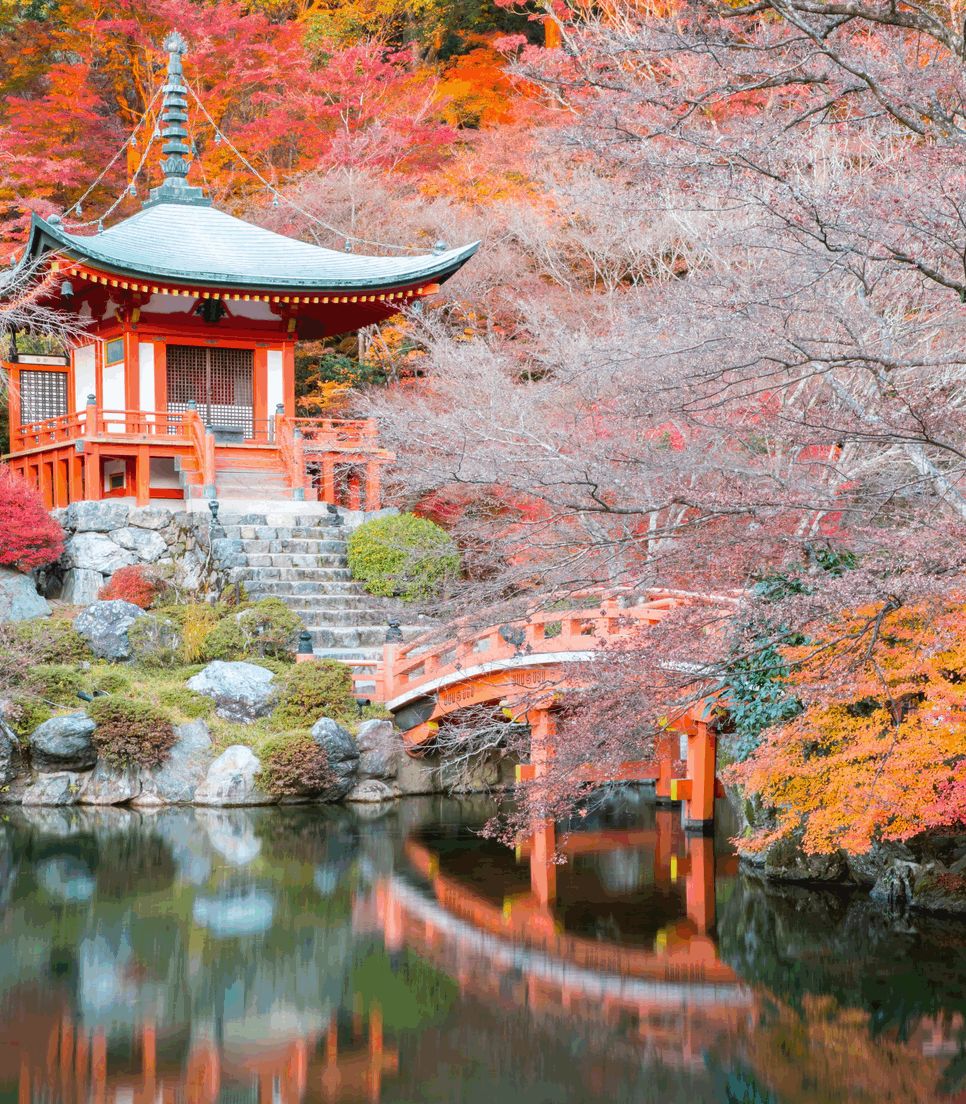
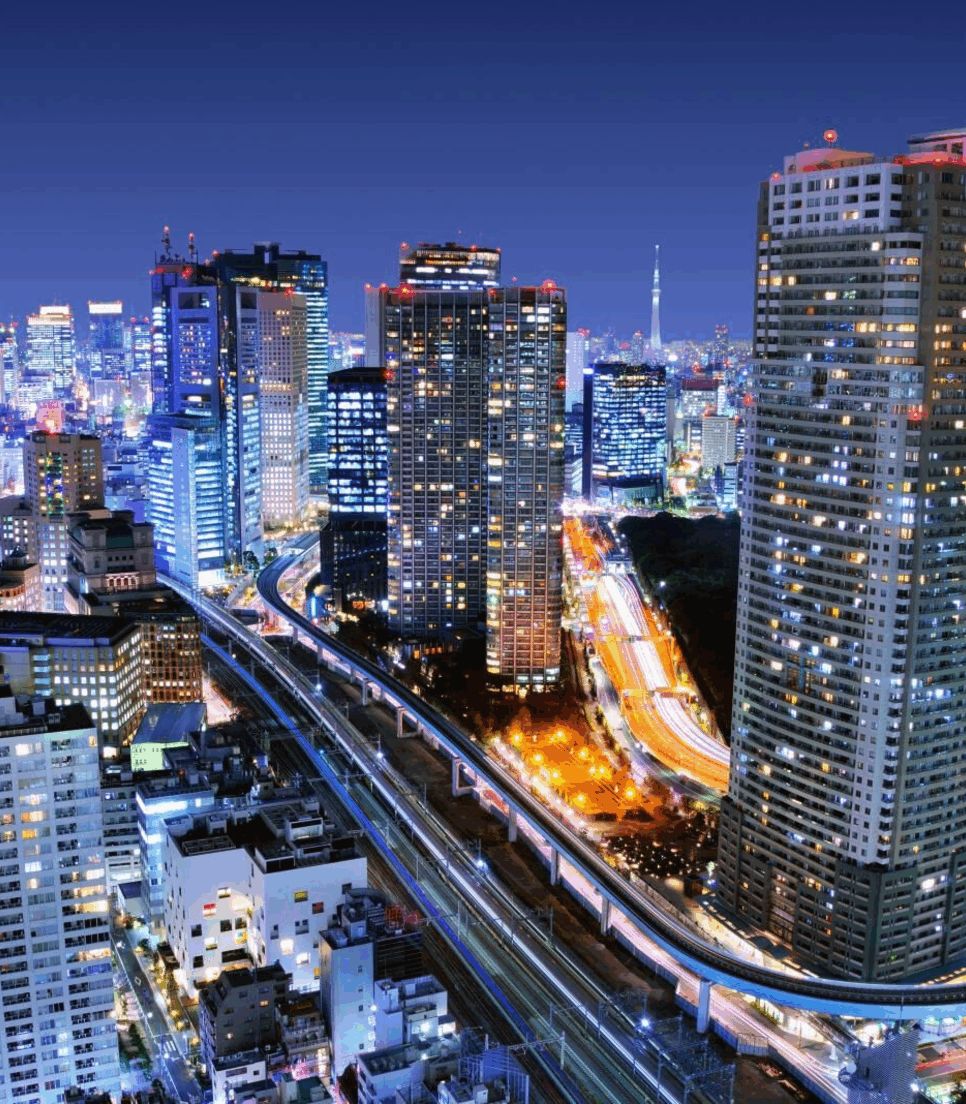
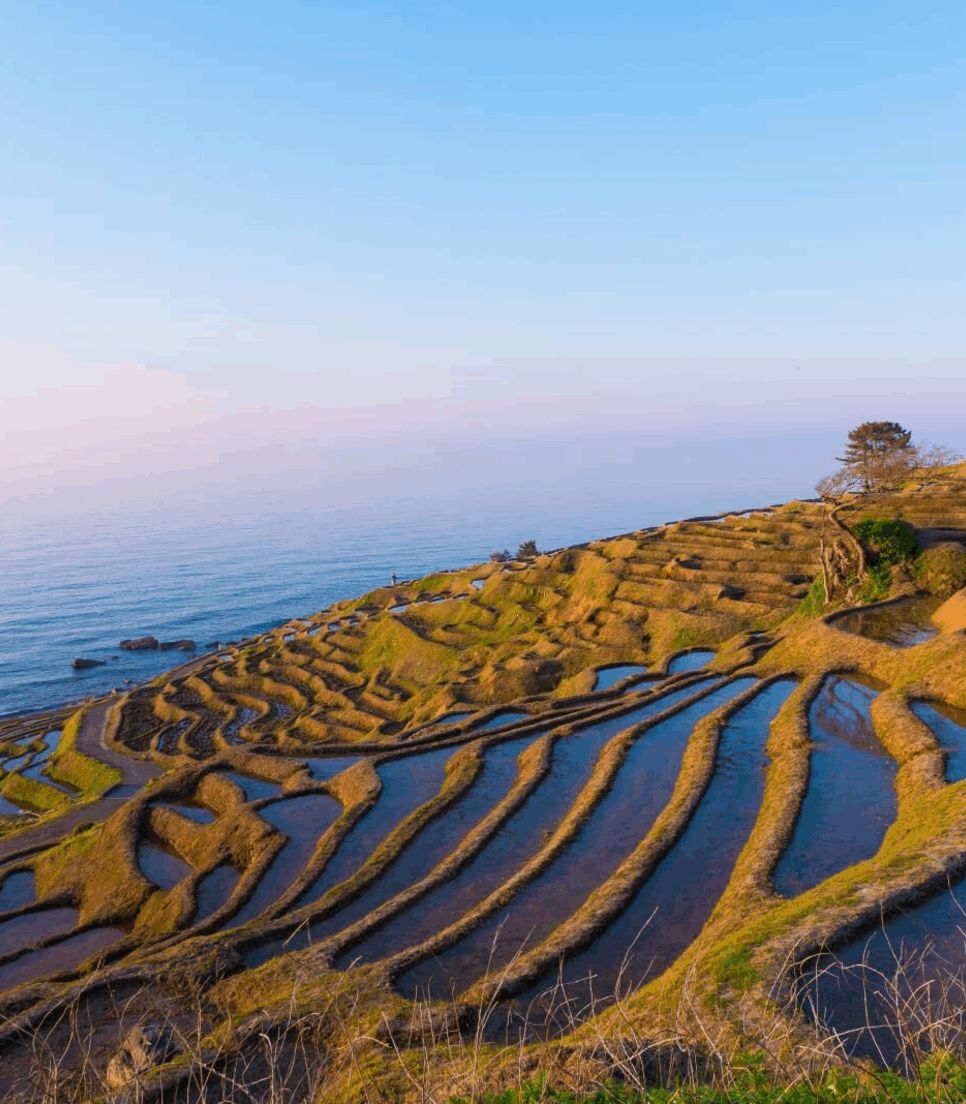
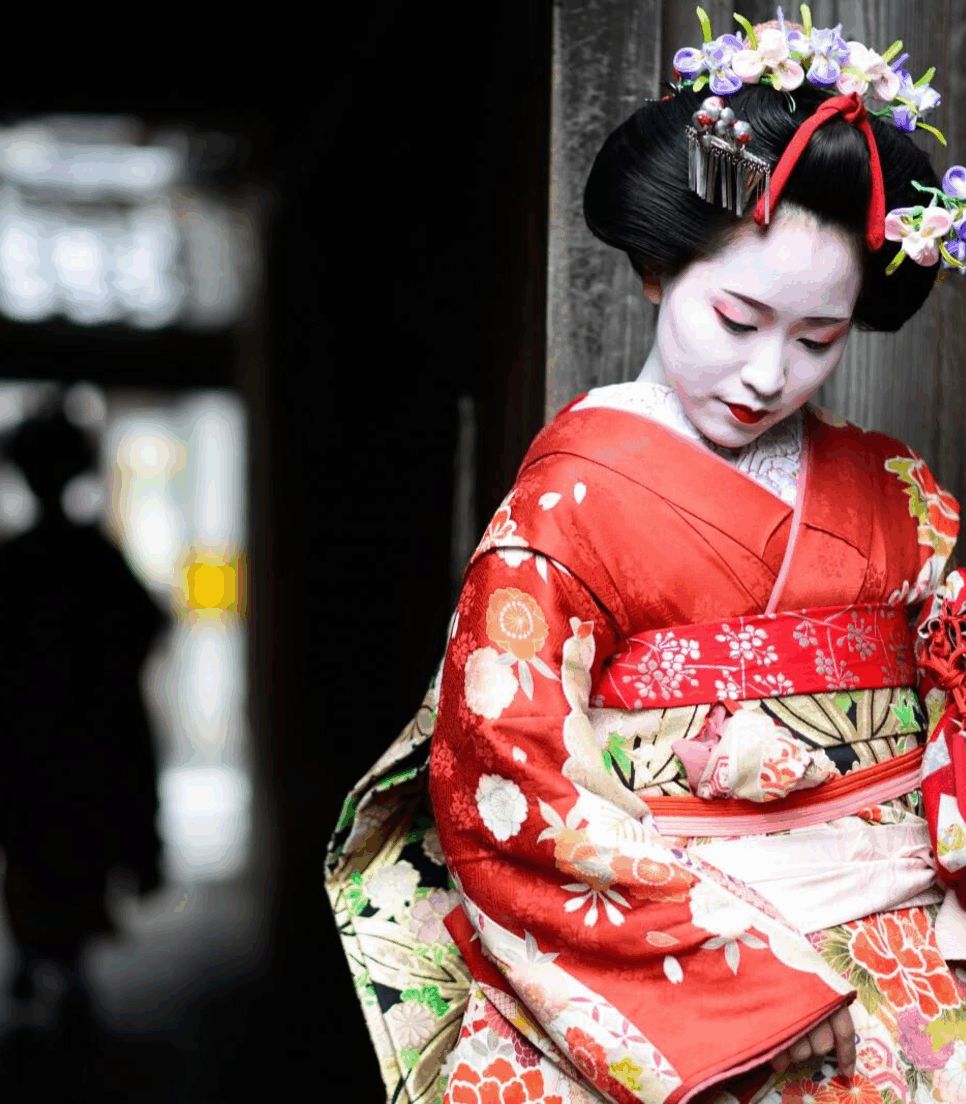

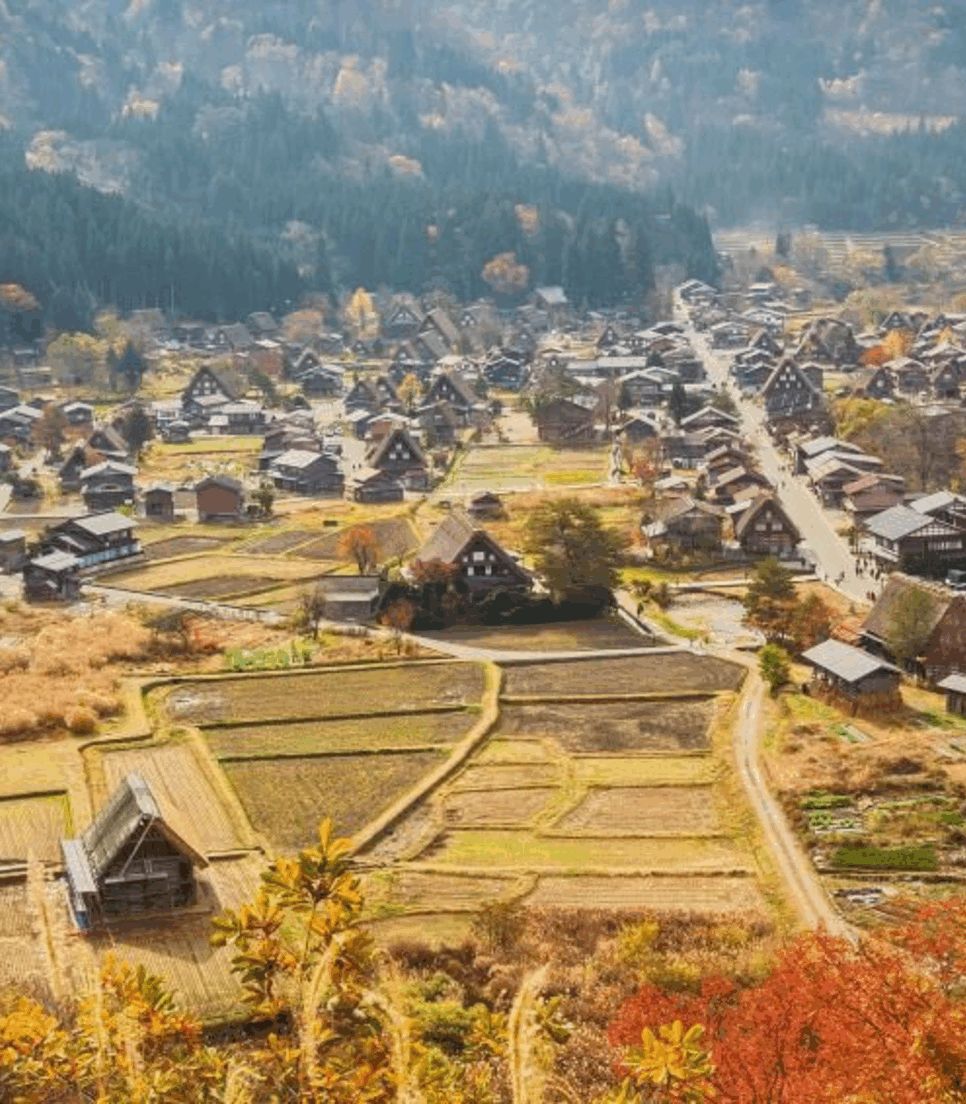


Cycling in Japan
Discover the best of rural and modern Japan on two wheels over an unforgettable fortnight as you cycle tour from Tokyo to Kyoto. There is no better way of experiencing the ever-changing landscapes of Japan than on two wheels, as you pedal along the Fukui coast to the picturesque farmlands and remote mountainous regions of Takayama and Unesco-listed Shirakawa-go, where you are able to get a close feel for the timeless rhythms and customs of the Japanese countryside.
- CategoryCultural & Historical
- TypeFully Guided
- Duration14 days
- Culture LevelOut There
- Skill Level3 - Intermediate
- Activity Level3 - Active
- Elevation3 - Intermediate
- TerrainMixed
- Distance333.7 miles
- Avg. Daily Distance37.3 miles
 Exodus Travels
Exodus TravelsWhere does the tour start and end?
The tour starts in Tokyo and ends in Kyoto. Transfers are not included in the tour price, however, the day before day 1 a group transfer will be arranged from Tokyo Narita airport (Narita International Airport - NRT) to the hotel for one specific flight. If you are at the airport then, you can benefit from this transfer if you book at least 6 weeks in advance - please contact us for more info about when this is.
If you do not take this transfer, or miss it, you must make your own way to the joining point at your own expense. The Keisei Skyliner provides the fastest connection into central Tokyo, connecting Narita airport with Ueno Station. A one way ticket is approx. 2500 JPY and the journey takes about 40 minutes. Departures are every 20-40 minutes. Tickets can be purchased from the Skyliner Ticket Counter at the terminal. Once in Ueno you can travel to your start hotel by taxi (5 mins. approx. 1700 JPY) or by metro to Tawaramachi (Ginza line, departs Ueno every 5 minutes, approx. 220 JPY). The hotel is only a short walk from Tawaramachi metro station.
For flights from Kyoto, Kansai International Airport (KIX) is about 75 minutes away from Kyoto by direct express train.
How long is the tour? How many cycling days?
The tour is 14 days long with 9 days cycling.
What's the tour like?
This trip is classified as Road, Activity Level: 4: Moderate/Challenging
9 days cycling, average 60km/day (37 miles), Partial vehicle support (with limited seats).
On this trip, you will cycle more than 500km over 9 days with an average of 60km per day so a good level of fitness is required. You will cycle mostly on surfaced roads with a few sections on country lanes, cycle paths and gravel. The routes are mainly undulating but they get hillier on the inland section to Takayama and Shirakawa-go where you will face some steady climbs. A support vehicle (with limited seats) accompanies the rides throughout the tour, except for the city bike tours in Kanazawa and Kyoto.
Routes follow mainly quiet back roads with low levels of traffic, but this does increase when approaching towns. The tour operator aims to cycle most of the route door-to-door, with only a few transfers and train rides organised to shorten some distances and avoid busier roads. Most rides will include some short sections through tunnels which are lit.
This trip is great for a first-time visit to Japan as it encompasses the varying different aspects of the destination, from the serenity and history of Kyoto to the extraordinary and modern Tokyo.
Some nights will be spent in traditional rural accommodation and guesthouses with shared facilities which do not run along the same lines as western hotels.
This trip as generally not suitable for persons of reduced mobility. However, if you are a regular traveller on such trips, please contact us to discuss the trip and your personal condition.How many guides are in the group?
There will be a local cycling leader and an assistant leader driving the support vehicle. For groups with 9 passengers upwards, a second sweeper cycling support leader will also accompany groups.
What should I bring?
Essential Equipment
Cycling clothing
Warm clothes & layers (it can be cold in the mountains- especially for the March & November departures)
Cycling helmet (compulsory on this trip)
Water bottle
Lightweight waterproof jacket or poncho and umbrella
Cycling gloves
Sun cream
Light cotton trousers and lightweight long sleeved shirts
Casual clothing (for sightseeing and restaurants)
Sun hat
Cash in Yen
Travel insurance
A first aid kit is carried on each trip, but you should bring your own first aid kit with diarrhoea treatment, painkillers, rehydration sachets, plasters and a blister treatment kit.
On Day 8, your bags will go ahead to Takayama which means that for the night in Shirakawa-go you will be without your main luggage. This is also the case on Day 11 as your bags will go ahead to Kyoto meaning you will be without your main luggage again in Gifu. This is necessary to ensure you don’t have to carry heavy luggage on public transport transfers. Therefore, it is suggested that you pack a small rucksack/daybag that can be used for these two nights to store your overnight necessities.
For March and November departures, please bring extra layers including full-length gloves and a scarf/cycling buff as coastal winds can be cold.
There are some train journeys involved on the trip and the stations are large and busy – the tour operator would advise you therefore try and pack as lightly as possible as you will need to carry your own luggage at the beginning of the trip on the journey from Tokyo to Kanazawa. In most locations, there is a ‘coin-laundry’ service in the hotels, which means you can wash and dry clothes on the move easily. These are not expensive to operate and there is usually time each evening to use them.Is a bike included?
Yes, a Giant Escape RX3 hybrid bikes (2017 and 2018 models) is provided as part of the tour.
1. The equipment remains the property of the supplier and you may not sell, hire out or part possession with the equipment.
2. You must not misuse the equipment and must return it in the same condition as when received (ordinary wear and tear excepted). The supplier is entitled to charge for any damage caused to the equipment during the period of hire.
3. You must ensure that the equipment is adequately secured when not in use. In the event of the equipment being lost or stolen, you may be liable for the replacement value of the equipment
4. You must not use the equipment whilst under the influence of drink or drugs and should immediately notify the Supplier in the event of breakdown or loss.
Extra Bike Bits
You may like to bring your own pedals and saddle (excluding the seat post) or gel saddle cover to fit to the hire bikes. The tour operator encourages this, if it is your preference. However, please note that you are responsible for your own equipment, and removing your saddle/pedals at the end of the trip. They cannot guarantee the return of any bike parts left behind.Do I have the wear/bring a helmet?
Wearing a helmet is mandatory for anyone taking part in this cycling holiday. Group members must bring their own helmets, as they are not available for hire.
Cycling of all kinds has its dangers and accidents can happen from time to time. Please ensure that you are properly prepared for the riding you are going to undertake.
Recommended Cycling Clothing
Padded cycling shorts (with loose 'over-shorts' where recommended), breathable clothing, and a lightweight waterproof/windproof top. Shoes with relatively stiff soles are better for biking but are not essential unless you are cycling long distances. Most people want to carry certain items with them during the day while cycling, for this we recommend a large bum-bag or small close-fitting daysack.Should I have travel insurance?
Yes. It is a condition of joining this holiday that you must be fully insured against medical and personal accident risks (to include repatriation costs and air ambulance or helicopter rescue services where appropriate). On arrival in destination for your trip, you will be asked to present details to your leader or local representative of your policy.
Tell me about the food on the trip please?
All breakfasts and 5 dinners are included.
Japanese cuisine is usually one of the main highlights of any trip to Japan. It is based on rice with miso soup and other dishes which are usually prepared with seasonal ingredients. Seafood is very common, and it usually comes grilled or deep fried. Sushi and sashimi aside, other staple dishes include Soba or Udon noodles, Sukiyaki (meat, fish and vegetables cooked in broth) and Yakiniku (grilled meat).
The included dinners are usually taken at ryokans (traditional guesthouses) which will serve a kaiseki style dinner, a multi-course meal including a dozen of tiny dishes prepared with locally-sourced seasonal ingredients. When food is not included, your leader will be able to recommend the best local eateries and arrange some group meals for a full immersion in Japan's varied and excellent cuisine.
Please note that in Japan the availability of certain specialised products for restricted diets, e.g. gluten-free, strict vegetarian (no fish/seafood) or vegan is minimal or non-existent. The group meals arranged by the tour leader will be in traditional eateries where the choices of vegan dishes may be limited to simple salads or boiled rice, however in In Kyoto and Tokyo a number of vegan restaurants are available.
You may also find it beneficial to bring some 'cycling snacks' with you from home if you have high energy bars or gels that you like to use during a ride. For those who wish to contribute a kitty is normally arranged and will be used to provide snacks and drinks during the rides.What sort of support and transportation is included?
The support vehicle will accompany the riders most of the time, however, there are only two seats available so you may have to take turns if you wish to skip parts of the rides. Please note the van will not follow the group during the cycling tour in Kanazawa and Kyoto.
Transport during the trip will be by train, metro, bus and occasionally private minibus. Most rides on this trip are point-to-point so the number of transfers on the trip will be limited. When transfers by train or bus are planned, journeys are generally short (2-4 hours) and comfortable.What's the weather like in Japan?
Japan has four very distinct seasons, although weather patterns vary across the island. The aim has been to avoid the extremely cold winters and humid summers and settle for the more pleasant climates of spring and autumn which are more comfortable for cycling. Temperatures in March, April and November will be around 14-17ºC during daytime and as cold as 7-10º C during the night. May, June and October are usually milder with temperatures ranging from 14ºC at night up to 27ºC during the day, although the likelihood of rain is higher during these months.
It is important to be prepared by packing warm clothing and layers for cold weather (especially for the March and November departures) in the interior in the region of Shirakawa and Takayama.
Wow what an amazing trip! Cycling in Japan is a truly fantastic and interesting cycling trip.
What was the most inspirational moment of your trip?
There are several - The friendliness and courtesy of the Japanese people, the traditional inns, the cuisine and the well-maintained roads, the incredible bullet train. …
Wow what an amazing trip! Cycling in Japan is a truly fantastic and interesting cycling trip.
What was the most inspirational moment of your trip?
There are several - The friendliness and courtesy of the Japanese people, the traditional inns, the cuisine and the well-maintained roads, the incredible bullet train.
What did you think of your group leader?
Tatsuya ( Tea ) is a fantastic group leader. He loves his country and imparted so much knowledge of local customs and etiquette in only two weeks it felt as if I had been in Japan for months. Nothing was too much trouble for him either on or off the road
Do you have any advice for potential travellers?
There isn't much need for a wide selection of "off the " bike clothes as you change into local dress ( provided ) almost immediately on arrival at hotels and inns. There are washing and drying facilities in most hotels. Take cash as Japan , perhaps surprisingly, is not a credit card culture
Is there anything else you would like to add?
I can't recommend this trip highly enough!
This is a great holiday for those who enjoy cycling in great scenery and want to learn a bit about Japanese culture and the Japanese way of life en route. It offers a bit of everything and includes great cycling, lovely countryside, traditional inns with traditional food, rooms, sleeping arrangements…
This is a great holiday for those who enjoy cycling in great scenery and want to learn a bit about Japanese culture and the Japanese way of life en route. It offers a bit of everything and includes great cycling, lovely countryside, traditional inns with traditional food, rooms, sleeping arrangements and hot springs. The guides make sure that all venues that offer education and enjoyment are visited during the cycling, so that overall one is left with a feeling that one has achieved some insight into Japan which is a very different society from ours. It was an inspirational trip with wonderful guides who made sure that we experienced all that there was to experience.
What was the most inspirational moment of your trip?
There were many inspirational moments on the trip and it is difficult to name just a few. There was a lovely ride for about five miles on the Noto peninsula; there were so many coastal views that we often stopped every few miles for a photo. The traditional inns were a unique experience which we felt privileged to share. If we had been doing this trip on our own without a tour guide I'm sure we would have missed out on these unique experiences. The cycling in the mountains and experiencing the autumn colours was heavenly. The good weather and blue skies helped of course. Tokyo and Kyoto were fascinating places and we did a lot considering we were there for only a couple of days.
What did you think of your group leader?
Our group leader, Tatsuya Yamasawa, was exceptional. He was very organised and methodical and made sure that the tour ran smoothly. He was kind, very friendly with an excellent sense of humour and camaraderie. Nothing was too much trouble for him and the whole group was so appreciative of all that he did for us. He was a credit to Japan and we all fell in love with the country partly due to him. We could not praise him highly enough.
Do you have any advice for potential travellers?
In terms of advice I would say that the cycling is moderate to challenging. Our group was very good and no one had any problems, but some hills did require a bit of puffing. I certainly wouldn't recommend anyone to do this trip unless they were used to cycling up to 50 miles at a stretch over undulating terrain. Travellers should also be flexible as traditional inns and traditional food are very different from what we normally experience in the west. You have to be prepared to bite the bullet and eat the raw fish, the seaweed, the octopus legs and the snails if you want to experience a traditional meal. It's worth it though to experience something truly unique.
Japan- an incredibly fascinating country with a culture like no other. The 2 week bike trip was a wonderful way to start to get to know Japan. Of course cycling is the best way to travel anywhere but having guides that explain their beloved country, teach you some of its…
Japan- an incredibly fascinating country with a culture like no other. The 2 week bike trip was a wonderful way to start to get to know Japan. Of course cycling is the best way to travel anywhere but having guides that explain their beloved country, teach you some of its culture, try to teach you the social skills that the Japanese excel at, getting you to test all the interesting food, giving history lessons and nature lessons, explaining the Shinto or Buddhist religion all the while giving you a great cycling experience makes the entire experience beyond memorable. The choice of the route gave us a good variety places to see. Staying in the Japanese inns ( ryokans) was amazing and definitely a must on any Japan trip. The food is an experience all on its own and if you are a fish lover than you will be in paradise. I really felt that the trip was complete and didn't just focus on one element of Japan so I never felt that I had too much of any one thing which was great. The description of the tour corresponded to what the trip really was and that is always appreciated. In the end, I didn't have too many preconceived notions of what I would be seeing and I can tell you that I was constantly amazed and ended up having enormous respect for the Japanese and their way of life. I thought my own country of Switzerland was well run but Japan wins on that respect. Kudos to the people of Japan and their being so courteous towards us tourists. Weeks later I am still feeling the effects of this trip and it is wonderful. Oh and thanks to Mother Nature for blessing us with the cherry blossoms.
What was the most inspirational moment of your trip?
The most inspirational moment for me was anything involving how their society functions. The quietness on the public transport ( no talking on cell phones), how orderly the cities are in what could be chaos, the esthetic of beauty in every detail, the cleanliness, the courteousness everywhere, the most amazing toilets, the taking off of shoes, the lack of crime, the precision of the trains or metros, and I can go on and on. I was just gobsmacked.
What did you think of your group leader?
Well is there a word better than incredible to describe Tatsuya or Mitch? Tatsuya, besides being a really interesting person with a very subtle sense of humour, was really a wonderful guise. Very attentive to our needs and our safety and an amazing sense of organisation. Not easy getting a group through crowded metro stations and onto the bullet trains or biking through a city but they made it easy. He has a great wealth of knowledge of all aspects of Japan and really explained things well. I immediately had confidence in him and therefore didn't really need to think about anything other than riding my bike and experiencing Japan. Mitch and Tatsuya were a great team and this being a first run trip makes it even more unbelievable at how well run it was. They both had a huge amount of patience with us and stayed calm at all times and I know that they are always thinking of the next part of the trip and that their work is never done but I never felt this. They took great care of us and I appreciate how attentive they were with me being a vegetarian. Highly recommend these guides and I thank them for the fabulous experience.
Do you have any advice for potential travellers?
One of the advantages of Japan is that on many of the nights in the inns you wear kimono like robes- so you don't need that many clothes other than cycling. As far as the Japanese baths the women and men bathe separately which wasn't very clear in the instructions and do follow the pre- bathing ritual if there are Japanese there at the same time. If you are vegetarian it can be difficult at times but do buy nuts at the convenience stores to compensate for some lack of protein. Being vegan here would be quite difficult.
Is there anything else you would like to add?
Nothing left to add. Great trip once again .